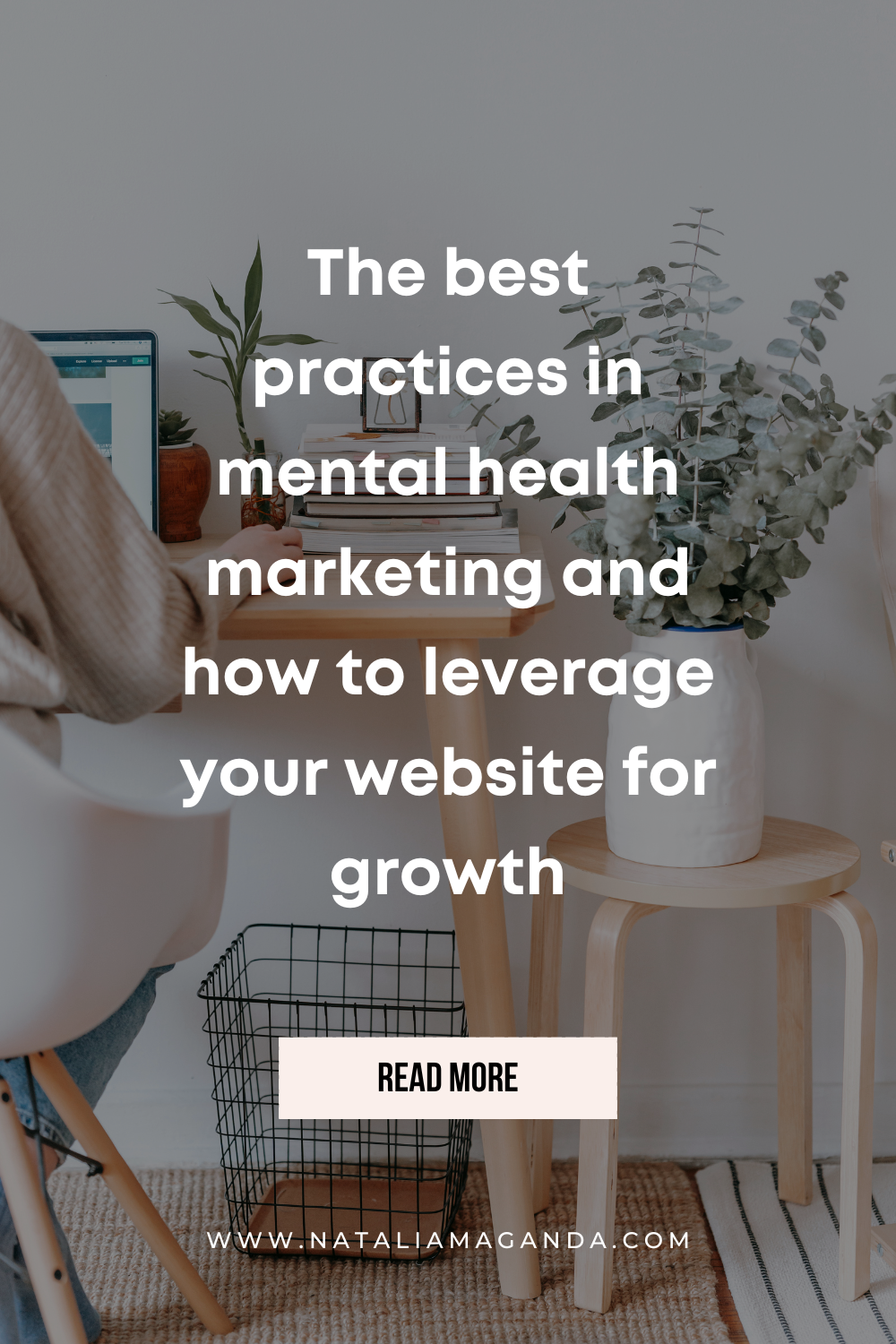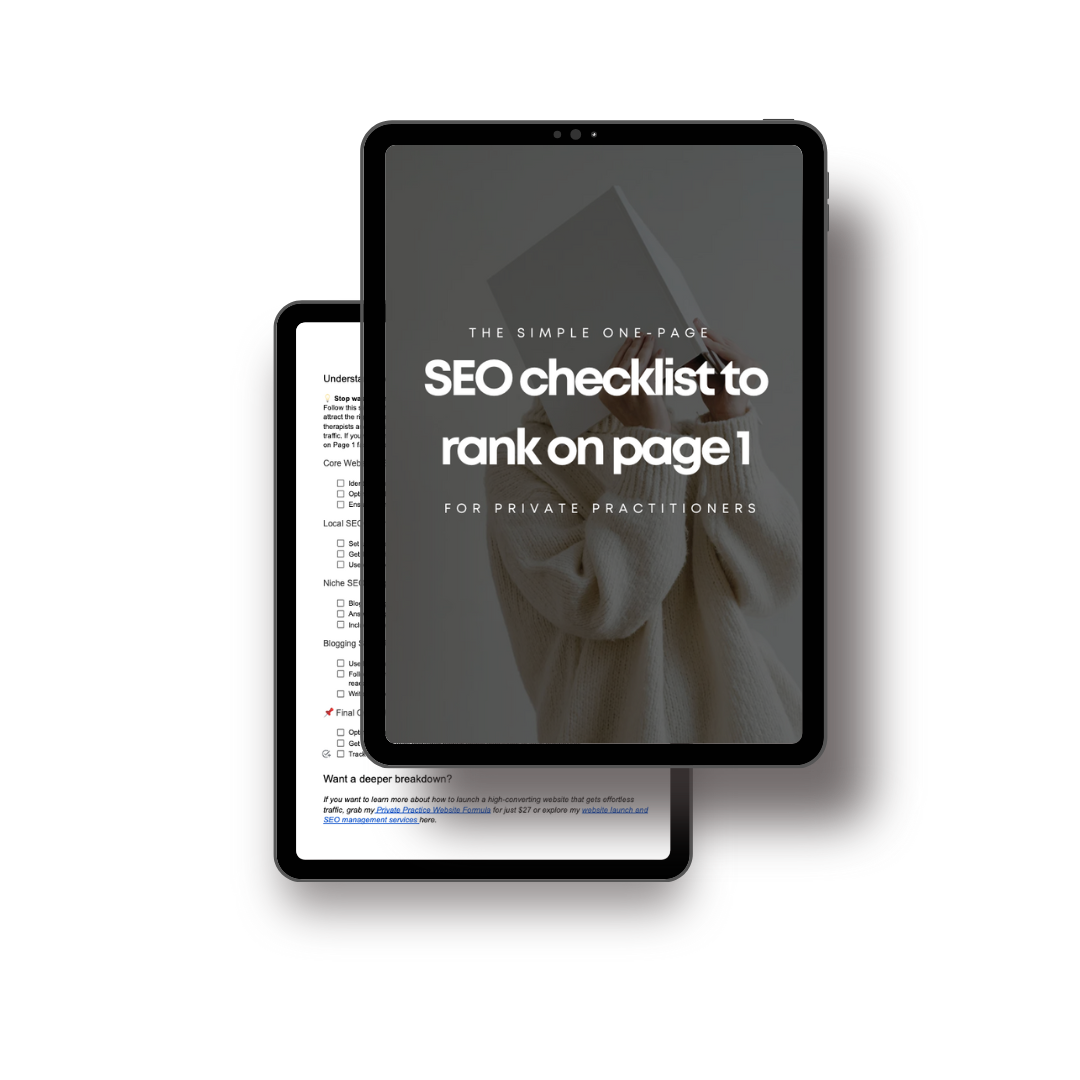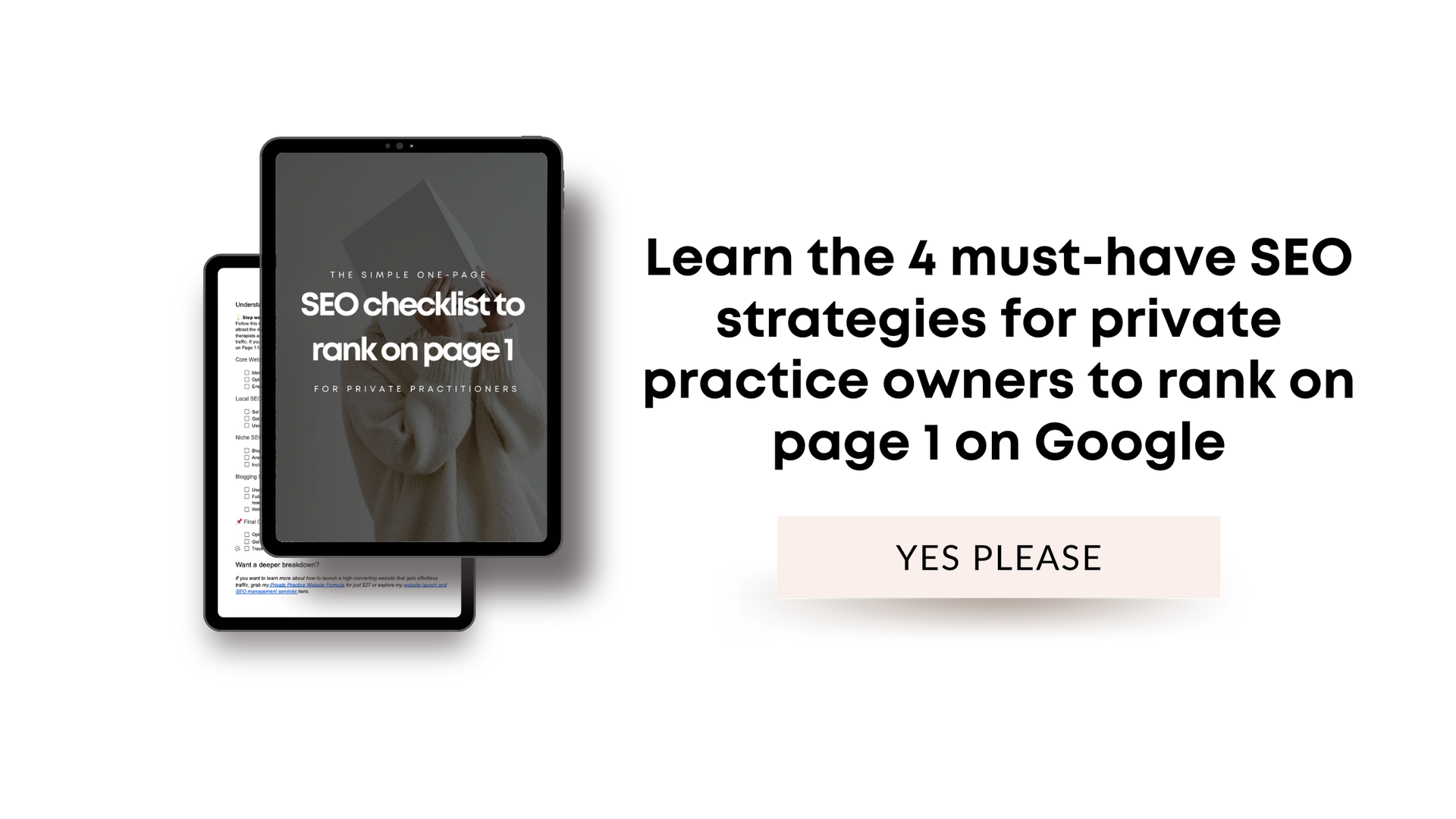The best practices in mental health marketing and how to leverage your website for growth
Why marketing your mental health practice matters
Marketing a mental health practice isn’t just about getting more clients—it’s about breaking down stigma, increasing accessibility, and building trust with those who need support. Yet, many therapists and mental health professionals struggle with self-promotion, feeling overwhelmed by the options or unsure where to start.
Maybe you’ve tried social media but didn’t see engagement. Maybe you’ve listed your practice on directories, but your calendar isn’t as full as you’d like. Or maybe you’re relying solely on referrals and word of mouth, wondering if a better online presence could bring in more ideal clients.
The truth is, a strategic approach to mental health marketing—especially leveraging your website—can position you as a trusted expert while making it easier for potential clients to find and connect with you.
As a web designer for therapists, I’ve helped private practitioners turn their websites into powerful client-attracting tools. In this guide, we’ll explore:
- What is mental health marketing and why does it matter?
- How to choose a mental health marketing agency or service
- What to consider before investing in marketing help
- How to promote mental health campaigns as a solo therapist or small practice
- The role of your website in mental health marketing
Let’s dive in.
What is mental health marketing and why does it matter?
Mental health marketing refers to the strategies therapists, psychologists, and wellness professionals use to reach and support their ideal clients. This includes:
- Online presence (website, SEO, social media)
- Content marketing (blogging, podcasts, educational posts)
- Community engagement (webinars, collaborations, events)
- Advertising and outreach (Google ads, local partnerships, directories)
The emotional value of ethical mental health marketing
Unlike traditional marketing, mental health marketing is rooted in trust, empathy, and ethical responsibility. People seeking therapy are often in vulnerable situations, and your marketing should prioritize education, accessibility, and clarity over aggressive sales tactics.
A well-designed website and strategic marketing plan ensure that the right clients find you, feel safe in your approach, and take the next step toward seeking help.
How to choose a mental health marketing agency or service
If you’re considering hiring a mental health marketing agency, here’s what to look for:
Industry-specific experience
Many marketing agencies don’t understand the nuances of mental health and HIPAA compliance. Choose professionals who have worked with therapists, wellness brands, or medical providers.
Ethical marketing practices
Avoid agencies that promise instant client growth or use tactics that feel salesy. Ethical mental health marketing focuses on educational, client-centered messaging rather than pressure-based conversion tactics.
Website and SEO expertise
Your website is the foundation of your online presence. A great agency should help you optimize your website for search engines (SEO) and ensure clear, strategic messaging that resonates with potential clients.
Content strategy alignment
Ask how they’ll help you create valuable content—blogs, videos, or social media posts—that align with your brand voice and expertise.
Where to find mental health marketing services
If hiring a full-service agency isn’t the right fit, there are other options:
- Freelance mental health marketers (on platforms like Upwork or LinkedIn)
- Marketing coaches for therapists (who offer DIY strategies and consulting)
- Website designers for therapists (like my web design services)
- Online communities (Facebook groups for private practice owners often share marketing recommendations)
Not every therapist needs an agency—sometimes, a strong website and a simple SEO strategy are enough to drive consistent inquiries.
What to consider before investing in mental health marketing
Before hiring help or running ads, clarify these three questions:
What are your client-attraction goals?
Are you looking to fill a specific program, increase private clients, or establish yourself as a thought leader? Different goals require different strategies.
What’s your budget?
Marketing services range from affordable DIY options to premium agency pricing. Knowing your budget upfront will help you choose the right path.
What’s working (or not working) now?
If you’re getting some clients from referrals but need better online visibility, SEO and website improvements may be a better investment than paid ads.
Final thoughts: Elevate your mental health marketing strategy
Marketing your mental health practice doesn’t have to be overwhelming. With a strong website, ethical content strategy, and targeted outreach, you can attract the right clients and grow your practice with confidence.
If you’re ready to take your website and marketing strategy to the next level, let’s talk. A well-designed therapist website makes all the difference in attracting clients and growing your impact.
Related reads therapist marketing:
- The profitable therapy rate increase letter template
- Therapy advertising simplified and how to build trust with your website
- The stress free way to build passive income for therapists
- Handling therapy no shows: fees, policies and tips to protect your practice
- Therapist email essentials: How to setup, secure and leverage your inbox
- Is therapy business coaching worth it and when is it right for you

* AI Disclosure: This content may contain sections generated with AI with the purpose of providing you with condensed helpful and relevant content, however all personal opinions are 100% human made as well as the blog post structure, outline and key takeaways.
* Affiliate Disclosure: Some of the links on www.nataliamaganda.com may contain affiliate links meaning that I will get a commission for recommending products at no extra cost to you.

hello! i'm natalia
Latina, web design expert for mental health professionals.
I help ambitious life coaches, therapists and holistic leaders amplify their magic, gain visibility, and simplify their marketing efforts through strategic web design and content.










